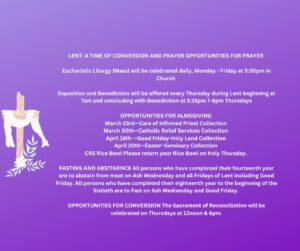At the end of the parable, Jesus says: The first will be the last and the last will the first. Today’s gospel is the parable of the vineyard workers. It is a strange parable. Because we have the situation where every worker who went to work in the vineyard gets paid exactly the same amount, regardless of when they started working, or for how long.
We also assume that someone who works longer at the same job will receive more pay. But why should the guys who worked for just an hour or two get paid the same amount as those who worked for eight or ten hours? And why did Jesus tell this parable? Remember that the gospel of Matthew was addressed to the Jewish people. Since they belong to the Chosen People of God, they considered themselves better than anybody else. They expected to be treated with a “favored nation” status. They are the ones referred by Jesus in the parable as the workers who were hired first. They were upset to see that those they considered less, pagans or sinners, receiving favors from God. We see that how they hated the fact that Jesus was dining with tax collectors and sinners, curing the lepers and talking to pagans. Jesus rebuked them for that attitude and said to them: “The last will be first and the first will be last.” So, by telling them this parable, Jesus wanted to teach the Jewish people that they should work for their salvation. But Salvation is a gift from God. We are saved by what we do but because God is merciful, love and compassionate.
Jesus teaches his disciples not to claim any special honor or any special place because they are closely with him or because they are the first members of his Church. All the people, no matter when they come, are precious and important to God. Also, long-time Church members should expect no special preference over new members. Since the chosen People of God, the Jews looked down upon the Gentiles. Jesus warns them that the Gentiles who put their Faith in God will have the same reward a good Jew may expect.
Matthew, by retelling this parable, wants to give the same warning to the Christian community who considered others as second-class Christians. This message is also for us. We have to work for our salvation. We have to love one another, we have to serve the hungry, the homeless, the needy people, we have to be merciful people, compassionate and peacemakers. But to be saved, we still need God’s grace. Because we are rewarded by God for who we are, not for what we do. Not because I have been Catholic for 50 years. Not because I have been priest for 25 years, not because I have received all the sacraments, not because I keep the commandments of God. But because of God’s mercy and love. Salvation is not something I deserve because of a number of activities I do or because I keep the commandments of God. Salvation is a God’s grace.





